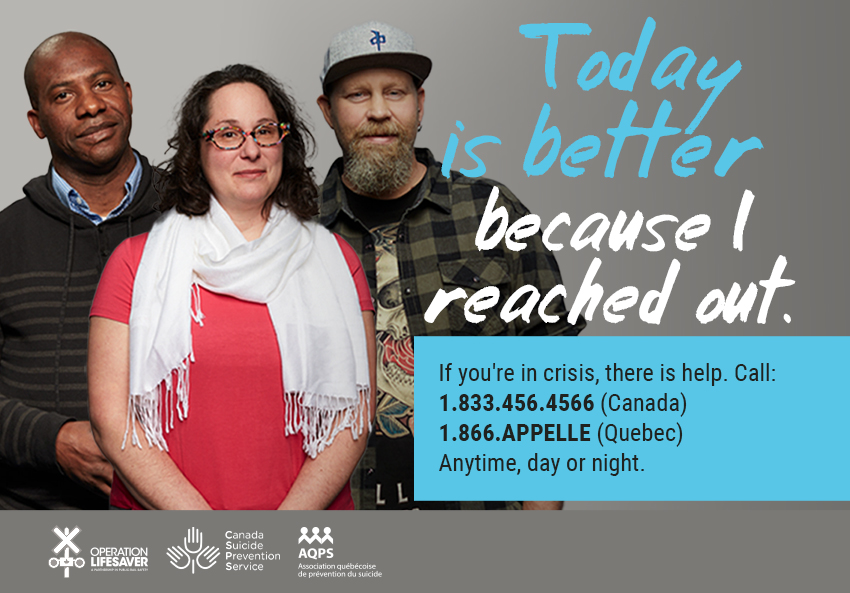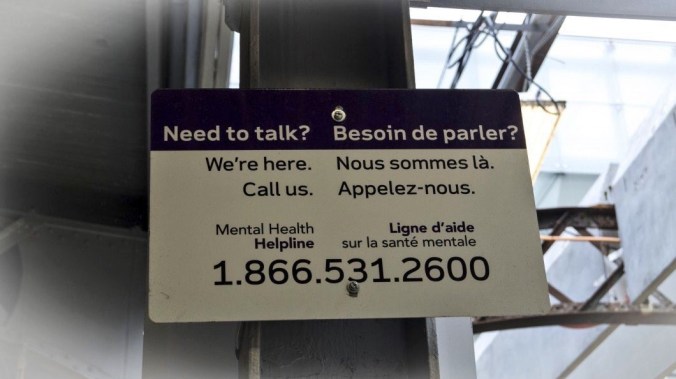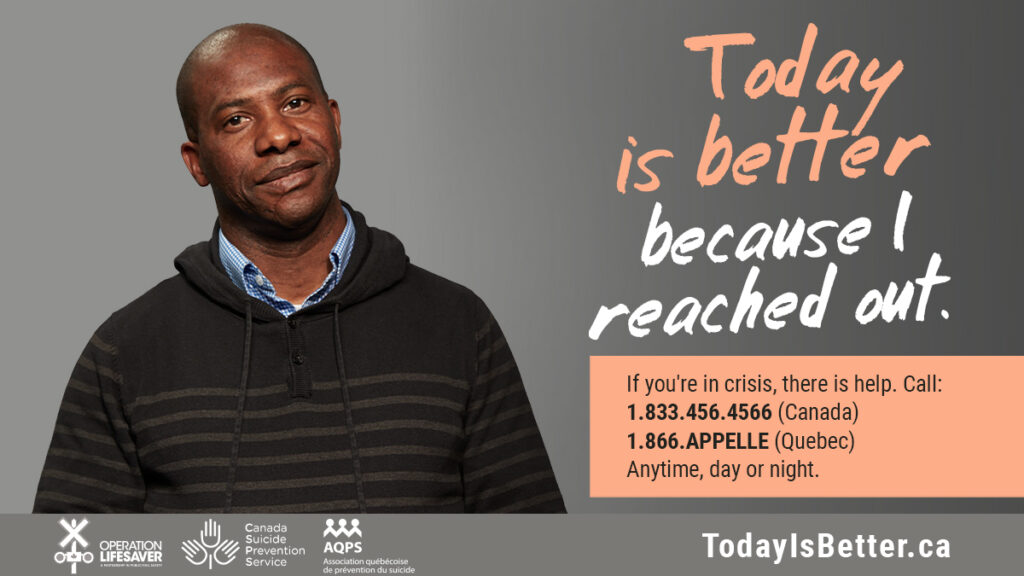As the Toronto Railway Museum marks Rail Safety Week (September 20-26) with our upcoming online lecture, we also want to highlight Operation Lifesaver’s suicide prevention campaign, #TodayIsBetter. Thank you to the Metrolinx team for permission to publish this story here. Find this post and many more on the Metrolinx blog.

Story by Anne Marie Aikins, Metrolinx head of media and public relations. Find her on Twitter @MetrolinxSpox.
As Metrolinx, in partnership with Operation Lifesaver Canada, mark Rail Safety Week – a North American initiative to bring awareness to risks around train lines – Anne Marie Aikins wades in with a column on why suicide prevention is always top of mind for those who work in the transit industry. As Metrolinx’s spokesperson, Aikins sees the toll left behind by those who die on tracks and roadways. But she also sees strong measures to remind those that are suffering, that there is help within reach.
Recently, a teenage girl lost her life on a GO Transit rail line.
I didn’t know her story. But as a mother and someone who sees the detailed reports after every major incident on Metrolinx bus routes and rail lines, I can tell you I – we all – carry the weight of suicide. And I also understand the power of prevention and hope.
Like all of you, Metrolinx has been focused on safety these past 18 months living through a once-in-a-century pandemic. We’ve directed much of our efforts on implementing more than 40 safety measures to ensure both staff and customers remain safe. In spite of the extraordinary investment needed to prevent the spread of COVID-19, not for a moment did we let down our guard on rail safety or stopped working to prevent the tragic loss of life as a result of suicide. Including the life of that child that was lost on tracks – away from her home and those who care for her.
“I see the weight of suicides, but also know today can be better for those who reach out.”
ANNE MARIE AIKINS, HEAD OF METROLINX MEDIA AND PUBLIC RELATIONS
Metrolinx recently kicked off its annual Rail Safety Week campaign to draw attention to the danger of taking risks around tracks and at grade crossings. Readers should stay tuned to Metrolinx News for more information this week about initiatives including innovative strategies to fight COVID-19.
But today, on the heels of World Suicide Prevention Day on Sept. 10 and during Rail Safety Week, I want to write about something public transit agencies are sadly all too familiar with – suicides. Every lost life has a devastating toll on surviving loved ones, first responders, witnesses and the entire transit community.
In my near decade with Metrolinx, I have received that notification more than 100 times and it hasn’t gotten any easier than the first time. Those reports and those stories often roll around my head, long after I’ve logged off from my work.

Although it varies from year to year, on average, more than a dozen people tragically die by suicide on Metrolinx rail corridors annually. There was no conclusive evidence as to why that in 2019, the number of lives lost on our rail corridors doubled.
Each time I receive the notification from our control centre, my heart sinks a little. This is a person, a daughter or son, a parent or grandparent, a co-worker or friend. Sometimes very young – like the 14-year-old girl recently – more often they are in the prime of life – their 20s, 30s or 40s, some older. All are very much loved and mourned by their family and friends.
Their lives matter to all of us. But we’re not in the business of mental health or counselling, so instead, under the leadership of Chief Safety Officer Martin Gallagher, we focus our efforts on intervening where and when we can. We work to prevent access to tracks with innovative strategies. We’ve broadened our training to reach more staff to help them recognize the signs of someone considering suicide and help them to learn how to reach out to people experiencing a mental health crisis, to spark a conversation.
Through hundreds of signs across our rail corridors, we ensure those contemplating suicide have access to crisis assistance.

We talk openly and transparently about suicide and mental health and we support traumatized staff with counselling and compassion.
This summer, Metrolinx also supported Operation Lifesaver’s new, poignant and hopeful suicide prevention campaign called Today is Better. It features touching personal stories of courageous people who experienced suicidal thoughts, yet survived to share their story so others could find hope that today can be better.
We were very proud to support this brilliant campaign by sharing the 11 video stories on social media. Customers may have also seen the awareness posters on our trains, buses and in stations. The campaign helped spread the word that help – hope – is a phone call or text away.
Resources
Any story about suicide can be triggering for someone who may be struggling with feelings of hopelessness or despair or reminded of past wounds. ConnexOntario is there to help at 1-866-531-2600, or for readers outside of Ontario please call Canada Suicide Prevention Services 1-833-456-4566 or text 45645.
And if you see someone experiencing a mental health crisis and are concerned they may be considering harming themselves, you can call 911. If you see something concerning at a GO station or near tracks, please reach out to our Customer Protection Officers 24/7 at 1-877-297-0642.
There is no simple answer to preventing suicide, however there are ways we can all make a difference in the lives of those who might be struggling. Our mental health has taken a collective toll through the pandemic and it’s not surprising that more people, including me at times, are feeling anxious, fearful, stressed and isolated. I find these coping strategies helpful from CAMH.
If you can digest a few more links – You can find Operation Lifesaver Canada’s website here and the related #STOPTrackTragedies campaign here.
Finally, I said I wanted to talk about suicide, but I think I actually wanted to talk about hope – hope that today is better. And tomorrow is another, hopefully even better day.
Story by Anne Marie Aikins, Metrolinx head of media and public relations. Find her on Twitter @MetrolinxSpox
